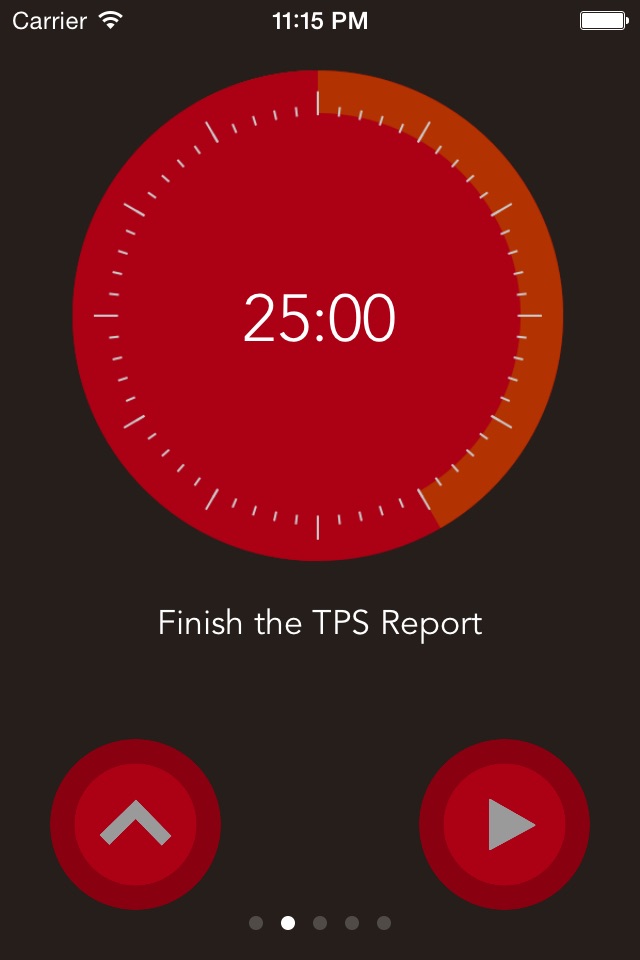
GTDT - Get Things Done Today app for iPhone and iPad
Developer: Baresi
First release : 15 Jul 2015
App size: 12.2 Mb
Get Things Done Today, using the Pomodoro technique.
Are you tired of endless lists of tasks that you, with good intentions, entered in your existing todo-application? Lets be honest, most of the tasks in your todo-lists will never be completed! Many of them will become obsolete or less important over time.
GETTING STARTED
- Decide todays tasks.
In the morning, decide which tasks you really need to complete today and create a task for each one in the GTDT app.
- Complete the tasks using Pomodoros.
During the day, open the GTDT app, select a task and start a Pomodoro (a 25 minute period of focused work). If one 25-minute Pomodoro is not enough for a specific task, just restart the pomodoro.
WHAT IS THE POMODORO TECHNIQUE?
The Pomodoro technique relies on the fact that 25 minutes is the perfect time period for performing focused, uninterrupted work. Its short enough to be able to completely focus on a task and long enough to actually achieve something.
During a Pomodoro, you should not let anything else distract you. You should not check your email, your Twitter feed or whatever. Ideally, you should also dismiss any interruptions that may occur, like incoming phone calls, collegues coming over wanting to discuss something etc. Instead, kindly tell them that you will get back to them shortly. (Shortly is when your 25 minute Pomodoro has ended).
The Pomodoro technique also recommends taking at least a five minutes break between the Pomodoros. The break may also be longer.
Pomodoros are the perfect fit for making progress when studying, programming, designing or doing whatever solo work that needs your full attention, but doesnt involve much collaboration with other people.
The name Pomodoro was inspired by the tomato shaped kitchen timer. (Pomodoro is italian for tomato)
WHAT IS GTDT?
"Get Things Done Today" is a philosophy that focuses on the most important short term tasks and uses the Pomodoro technique to complete them.
This philosophy challenges David Allens time management method "Getting Things Done", which encourages its followers to manage every single task they can think of, short term and long term, and then hide the tasks that cannot be done in short term.
GTDT puts no focus at all on long term tasks. Instead, GTDT assumes that if some future task is important enough, it will attract your attention again anyway. If a future task turns out to be not-so-important, you will not think of it again and it should simply be forgotten.

